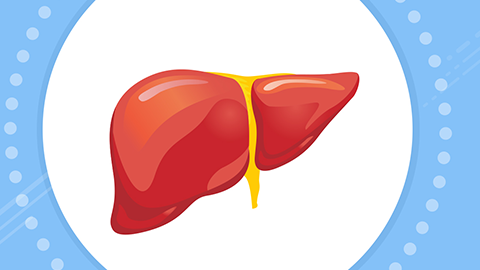What causes excessive liver fire?
Excessive liver fire may be caused by emotional suppression, long-term late-night activities, liver qi stagnation transforming into fire, hyperactivity of liver yang, or damp-heat in the liver and gallbladder. Management should be based on specific conditions. It is recommended to visit a hospital promptly and follow medical advice for treatment.

1. Emotional suppression: Prolonged feelings of anger and depression can lead to impaired liver qi circulation, causing qi stagnation within the body. Over time, this stagnation can transform into liver fire, resulting in excessive liver fire, commonly manifesting as irritability and chest tightness. It is recommended to learn emotional regulation techniques, confide in friends, or relax through activities such as traveling or listening to music to relieve liver qi.
2. Long-term late-night activities: The nighttime is when the liver should rest and detoxify. Frequently staying up late prevents the liver from detoxifying and repairing itself normally, easily causing rising liver fire. It is advised to adjust one's schedule, aim to sleep before 11 PM daily, ensure 7-8 hours of sufficient sleep, and allow the liver to function properly.
3. Liver qi stagnation transforming into fire: Due to emotional distress and liver qi stagnation, prolonged qi stagnation generates fire, causing symptoms such as irritability, anger, flushed face, red eyes, and distending pain in the hypochondriac region. Patients may use medications such as Dan Zhi Xiao Yao Wan, Jia Wei Xiao Yao Wan, or Long Dan Xie Gan Wan under a physician's guidance to alleviate symptoms.
4. Hyperactivity of liver yang: Often caused by yin deficiency of the liver and kidney, where yin fails to restrain yang, leading to excessive liver yang rising upward and disturbing the head and eyes. This may cause dizziness, tinnitus, headache, eye redness, irritability, and anger. It is recommended to follow medical instructions to use medications such as Tian Ma Gou Teng Granules, Nao Li Qing Pills, or Song Ling Xue Mai Kang Capsules to relieve discomfort.
5. Damp-heat in the liver and gallbladder: Often caused by exposure to damp-heat pathogens or excessive consumption of rich, greasy foods, which generate damp-heat accumulating in the liver and gallbladder. Symptoms may include distending pain in the hypochondriac region, bitter taste and dry mouth, yellowish and scanty urine, and sticky, unsatisfactory bowel movements. Patients may follow medical advice to use medications such as Yin Chen Hao Tang Granules, Xiao Yan Li Dan Tablets, or Long Dan Xie Gan Wan to alleviate symptoms.
In daily life, it is recommended to adjust dietary habits, reduce intake of spicy and greasy foods, and consume more light, fiber-rich foods such as vegetables and fruits to promote health.
References:
[1] Hu Suifa, Jin Yanmei, Pang Renqi, et al. Research on a Clinical Evidence Map for the Treatment of Migraine of Liver Yang Rising Type with Traditional Chinese Medicine[J]. Guangming Journal of Chinese Medicine, 2024, 39(11): 2116-2121.
[2] Yang Chengxiang, Zhang Gang, Dong Shihai, et al. Clinical Effect of Anti-inflammatory Gallbladder Decoction in the Treatment of Severe Acute Pancreatitis of Damp-heat Type in the Liver and Gallbladder[J]. Clinical Research, 2024, 32(08): 117-120.





